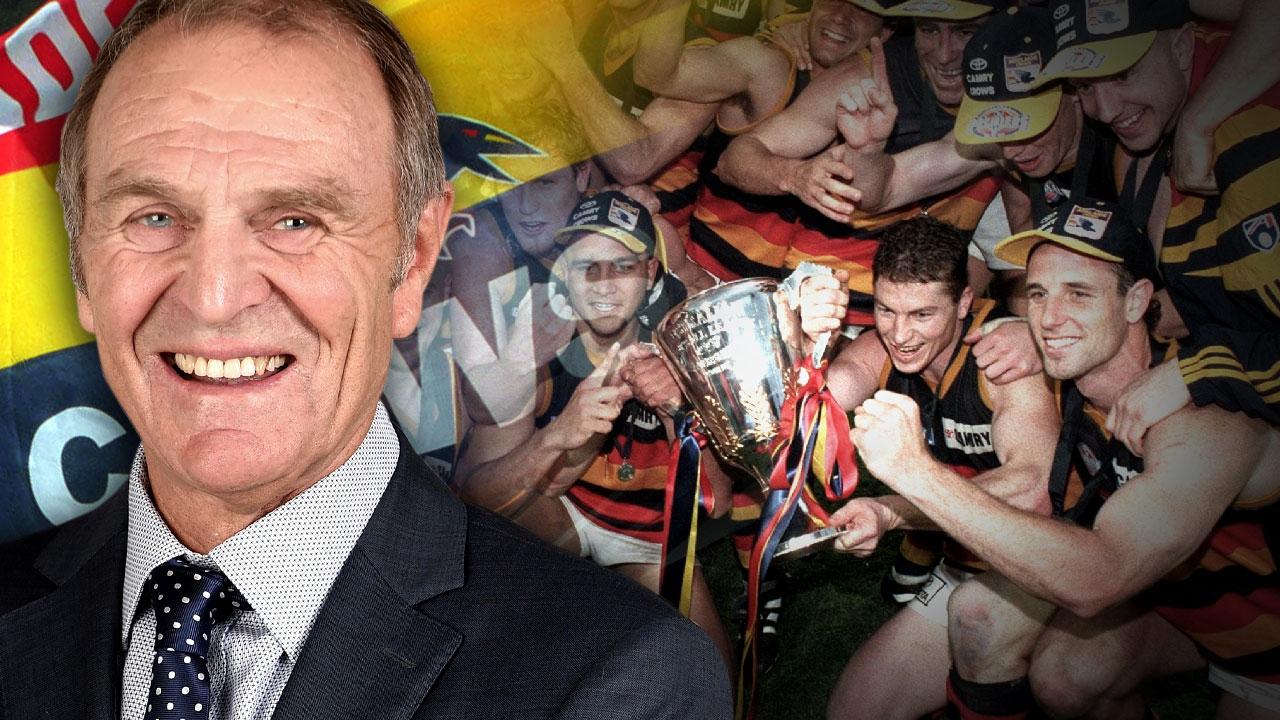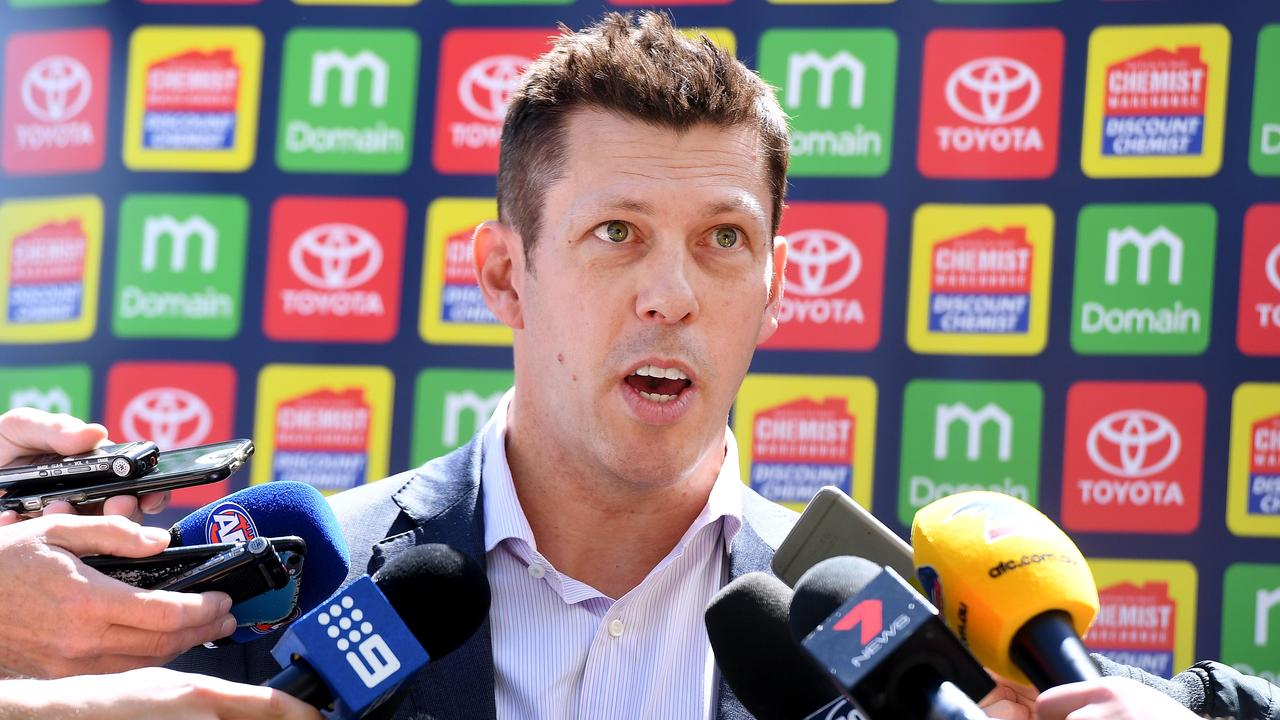Why South Australia deserves greater representation at the Australian Football Hall of Fame
With the Australian Football Hall of Fame invitations arriving this week, Graham Cornes reflects on the many worthy South Australian players who deserve recognition.
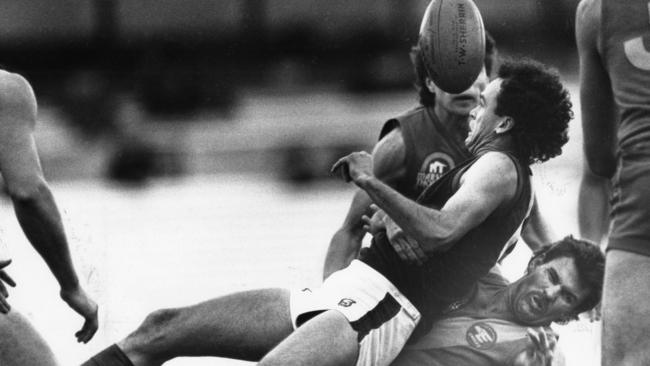
Graham Cornes
Don't miss out on the headlines from Graham Cornes. Followed categories will be added to My News.
The invitations to the Australian Football Hall of Fame dinner arrived this week.
The new inductees would already have been notified and amid that bewildering swirl of emotions which accompanies such an honour they would be finalising guest and travel arrangements and working on acceptance responses.
We can only assume there is at least one South Australian in the new class of inductees.
Of course, that wasn’t always the case. However, Western Australian champion, Barry Cable, already an official Legend of the Hall of Fame, campaigned so vigorously and vociferously against the Victorian bias of the selection panel that there has been in recent years a bigger focus on the players from SA and WA.
Still, it’s just so difficult to get a South Australian inducted despite many holding stronger credentials than those already honoured.
Extending the waiting period for recently retired AFL players has made it a little easier — but not much.
The identities of the new inductees are always a closely guarded secret, despite those in the media who would sell their mothers to be the first to leak the identity of those anointed.
Nevertheless, we can speculate, promote and celebrate the contributions of those South Aussie footballers who surely must be on the cusp of national recognition by the Hall of Fame.
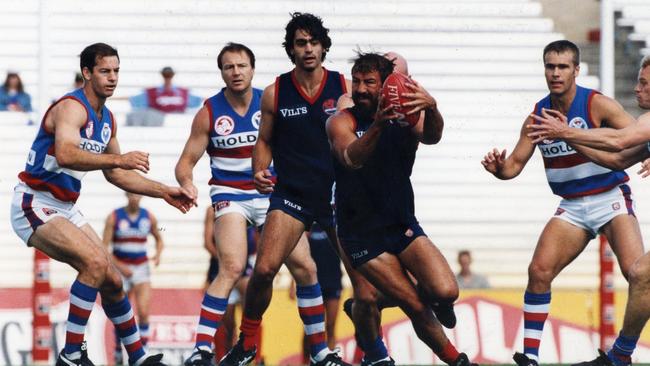
Without even trying and without delving back into the archives to examine more closely the careers of champions past such as North Adelaide’s premiership captain and Magarey Medallist Ian McKay, or 1913 Magarey Medallist Tom Leahy, whose careers were cut short by the two world wars, six players spring easily to mind.
Norwood fans demand Garry McIntosh receive the honour. The club favourite played brilliantly and bled red and blue blood through 371 games for his beloved Redlegs.
He won two Magarey Medals and played in two premierships for Norwood.
In 12 state games he won the Fos Williams Medal three times. But will the fact that he was convinced by a misguided Norwood hierarchy to ignore the opportunities to join the inaugural Crows and be tested against the AFL’s best such as Chris McDermott and Andrew Jarman count against him?
The hypocrisy of those who exploited McIntosh’s loyalty but later joined the Adelaide Football Club themselves still astounds.
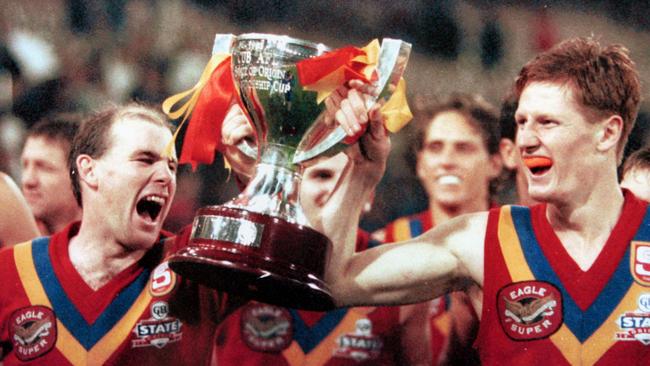
Andrew Jarman’s football record is amazing — 326 games for North Adelaide, Norwood and the inaugural Crows, three club champion awards, an incredible five Fos Williams Medals and twice all-Australian is testament to his brilliance.
Add in that his one of only two men to have won Magarey Medals with two clubs — and the only player in the past century to do so — and his record is astonishing. He is destined to join his brother Darren in the Hall of Fame. But when?
Michael Aish has always been a modest champion. He was bullied and buffeted over 307 games with Norwood but he played the game with sheer brilliance and scrupulous fairness. A Magarey Medal, a Fos Williams Medal, four Norwood best and fairest awards and two premierships should qualify anyone for footy’s ultimate recognition.
Port Adelaide’s champion forward, Tim Evans, is another of football’s contradictions. A big man who was often on the receiving end of an opposing full back’s excessive vigour, he nevertheless maintained a single focus on the ball.
His football life started in Tasmania, before he was recruited to Geelong, where he played in defence.
However, he flourished when John Cahill recognised he had a champion full forward.
In 232 games for Port he kicked 1019 goals, second only in SANFL history to the legendary Ken Farmer. He played in four premierships and was six times the SANFL’s leading goal-kicker.
Modest to the point of reclusive, he deserves to be honoured.
In one respect the advent of the Crows interrupted Chris McDermott’s glorious career. From another perspective it enhanced it.
He had already played 227 games and won the Glenelg’s best and fairest three times before the Crows came calling.
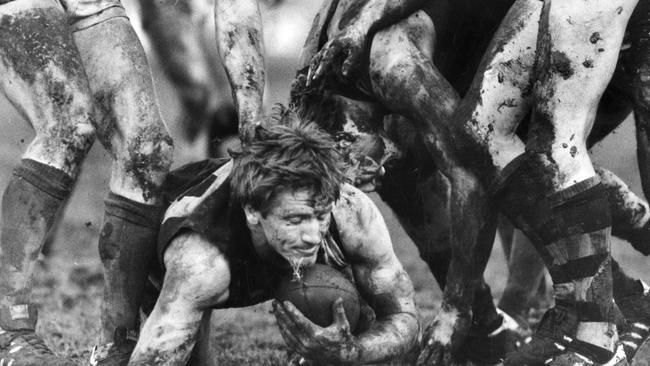
The inaugural Adelaide captain played another 117 AFL games, adding the Malcolm Blight Medal to his Fos Williams and Simpson Medals.
He was selected in the All-Australian team in 1992, having been twice an All-Australian after state-of-origin carnivals.
Eight times South Australian captain, his stellar career can surely be ignored no longer.
Mark Williams often flies under the radar when contemplating Hall of Fame nominees but his contribution to football is astounding.
His playing career was fragmented between four clubs — West Adelaide, Port Adelaide, Collingwood and the Brisbane Bears, but it totals 380 games.
Additionally, he played eight state games for SA and one for Victoria. He also won Collingwood’s best and fairest, the coveted Copeland Trophy, twice.
He played in four premierships for the Port Magpies but his greatest football triumph came when he coached the Power to its first AFL flag. A football tragic in the mould of the great Kevin Sheedy, surely no one is more worthy.
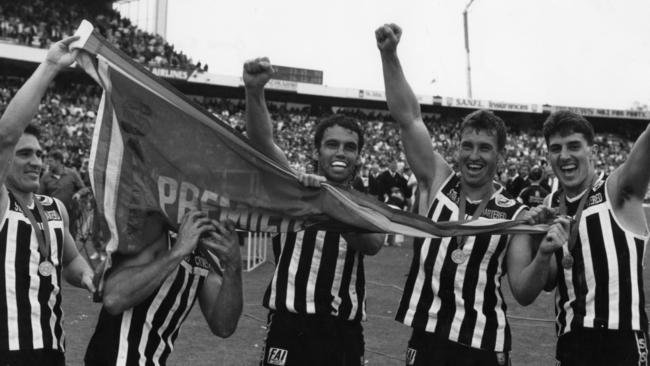
That’s six South Australians who are more than worthy. With a heavy heart, I’ve excluded Michael Taylor, whose six best and fairest awards at Norwood demands consideration.
The brilliant Glenelg Magarey Medallists Kym Hodgeman and Tony McGuinness also deserve to be recognised.
However the biggest test for the autonomy of the Australian Football Hall of Fame is how it assesses the phenomenal coaching record of Central District’s coach Roy Laird. Seven premierships would see any AFL coach automatically inducted.
Perhaps they are waiting until he retires!
It is obvious to students of our great game that those who sit on the selection committee for the Australian Football Hall of Fame have an unenviable task. So many footballers demand inclusion.
The biggest challenge is for the Victorian-centric members of that committee to put aside their biases and give full consideration to the records of those great players whose careers were played outside of Victoria.

